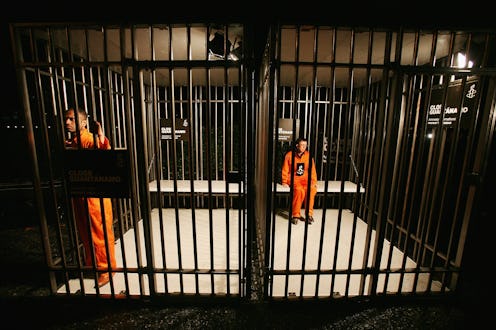Yet another new perspective of Steven Avery's trial came to light after Making a Murderer attorneys Dean Strang and Jerome Buting sat down with The Guardian before embarking on their international tour. According to the legal team, a defendant's socioeconomic status plays a significant role in the way their trial is handled by authorities and the jury. Since a good defense is dependent upon the cash at hand, impoverished defendants are more vulnerable than perhaps anyone else to false accusations.
During the conversation, Strang and Buting explained what they hope to teach audiences and revisited specific components of Avery's now famous case. Given the popularity of the show and the attorneys' newly found fame, the majority of talking points had already been established. However, one less discussed characteristic of Avery's case stood out most significantly: poverty.
The Avery family wasn't impoverished, but they certainly are not wealthy. This particular trait applies to countless cases throughout the nation. In other words, it's not just about little Manitowoc County — it's about a larger trend within the American Justice System. Buting told The Guardian the problem is more prevalent than you may think.
Class obviously plays a big role, in America upwards of 90% of criminal defendants are indigents: too poor to pay for a defense lawyer, much less an expert or forensic tests.
This trend also applies to perpetrators of nonviolent crimes, a study conducted by the Vera Institute of Justice found in February 2015. According to the study, people convicted of nonviolent crimes most commonly find themselves in local jails because they cannot afford bail. To make it worse, over 80 percent of inmates will accumulate additional charges for jail and court costs upon being released. Thus, the justice system has managed to create a vicious cycle that both begins and ends with poverty.
This not only spells bad news for inmates' ability to land a job and raise their families, but also weighs on the United States' economy. Over the past 20 years, the study calculated, violent crime has actually decreased by half, but jail admission has nearly doubled. Executive director of the Vera Institute Nick Turner spoke with CBS MoneyWatch on the matter.
We are punishing people for their poverty. When we looked at the data, we found 75 percent of the population of people in jail are awaiting trail and are there for nonviolent offenses. That is mind-boggling when you think the country spends $22 billion on jail populations.
If many of these people cannot afford to pay bail, how can they be expected to pay for attorney if convicted of a more serious or violent crime? Defense attorneys cost thousands of dollars up front, and the sum can double or even triple within days. Luckily for him, Avery has defense lawyers volunteering to assist him. Strang told The Guardian that the series has strengthened the possibility of a retrial.
Many people have rallied to Steven’s support, and that support has taken many forms. As importantly, perhaps, he clearly has new hope, which for a man serving life in prison without the possibility of parole is essential if he is to continue to aid his new lawyers in seeking justice.
But if it weren't for the popularity revved up by Making a Murderer, that might not be the case. If Strang and Buting have their way, Avery's trial will continue to turn eyes towards the larger, more universal problems within the system.
